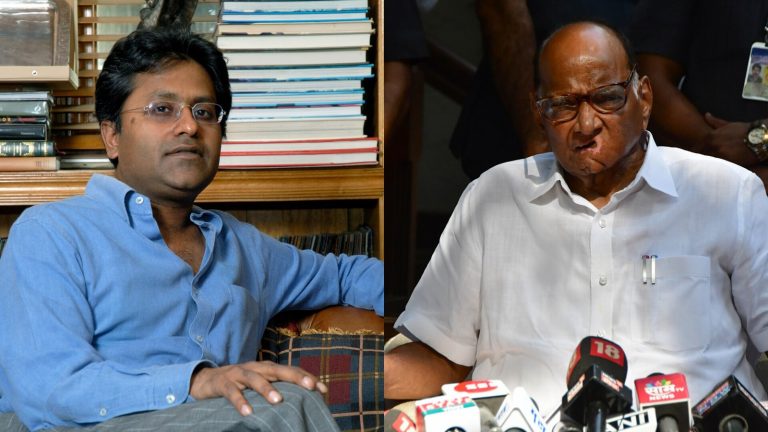Former IPL Chairman Lalit Modi has come out in support of NCP leader and former BCCI functionary Sharad Pawar. Modi, while responding to a news article giving credit to Pawar for his role in getting the IPL green light, called the senior leader a “global icon” who should not be forgotten.
In a post on Instagram, Modi wrote, “Absolutely correct. It was because of #sharadpawar – his blind faith in me and backing me 100 percent we have @IPL Yes we should thank him for the global icon which we all love. He made me realise my dream. And the world can’t do without the IPL today. So never forget mr @pawarspeaks vision. 🙏🏽 I salute him 🙏🏽”
Sharad Pawar honoured at Wankhede stadium:
Notably, there has been some criticism on social media of the Mumbai Cricket Association’s recent decision to name a cricket stand at the Wankhede stadium after Sharad Pawar.
Pawar has served several stints as MCA president. The veteran administrator also served as President of the BCCI from 2005 to 2008 and President of the ICC from 2010 to 2012.
While not a cricketer himself, the 84-year-old has often been credited with the commercial boom in Indian cricket, including giving full support to Modi for the launch of IPL.
Since its inaugural season in 2008, the IPL has become one of the most popular T20 leagues in the world, with many foreign players even forgoing national duty to play in the money-spinning league. The T20 leauge has been credited with bringing riches to the BCCI, while also providing a platform for young players to showcase their talent.
Many of India’s current players have their roots in the IPL, including India’s T20I skipper Suryakumar Yadav, pacer Jasprit Bumrah, all-rounder Hardik Pandya and many powerful opening batsmen like Yashasvi Jaiswal, Abhishek Sharma, Ruturaj Gaikwad and Sanju Samson. The tournament has also often been accused of over-glamourisation and prioritizing entertainment at the expense of the purity of cricket. Critics also argue that the rise of the IPL has led to young talent focusing more on the 20-over game, leading to a decline in longer formats of the game such as ODIs and Tests.



